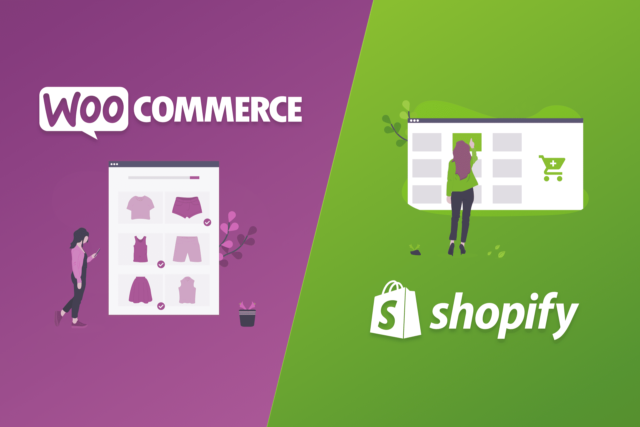How Much Does an Ecommerce Website Cost?
Having an ecommerce website built is easier than ever, but even with tools like website cost calculators at a small business owner’s fingertips, there are still many misconceptions about the overall costs associated with building an ecommerce website. At the same time, most business owners are keenly aware that online commerce has become a huge source of revenue for businesses across the United States. For example, Inc. Magazine has indicated that 43% of all online sales are made through Amazon. Moreover, major e-commerce platforms such as Etsy and Ebay give online merchants access to a huge audience of potential customers, and social media platforms like Facebook Marketplace give merchants access to over one billion monthly active social media users.
Despite the large audience that ecommerce platforms give business owners access to, most merchants still own and maintain their own website, because online consumers will often go straight to the source of a product purchased on Amazon or Etsy to buy additional merchandise. So, by operating an ecommerce website that is independent of these online giants, you can attract your own independent following of online shoppers while avoiding per purchase fees from other online marketplace platforms, but you, like so many online retailers, may not have built your own website yet due to a lack of understanding as to how much it costs to build each element of an ecommerce website. However, the overall affordability of an ecommerce website might surprise you.
Ecommerce Website Costs
Most ecommerce websites are built to offer a healthy amount of products in the beginning, typically 25-50, and once the website is established, the business owner can increase the depth of the website over time. Even more importantly, you need to add marketing features to your website in the beginning to ensure that you can easily market your ecommerce website online and that customers can easily make purchases from any desktop or mobile device. As such, you should anticipate paying the following upfront costs to have your website built:
- Website structure designed to accommodate 25-50 products – $3,600
- Product Catalog – $400
- Secure Website Certificate – $175 Annually
- Domain Registration – $25 Annually
- Automatic Translation Plugin – $100
Extra must-have Features for Ecommerce Websites
The features listed above should be incorporated into every ecommerce website, but they represent the minimum factors needed to successfully establish your website’s online presence. There are, however, other enhanced website features that you should consider incorporating into your website’s structure to enable it to rank well in search engine results on Google, allow your customers to easily purchase your products, and entice your customers to engage with your website through social media. These features and their prices are listed below:
- 25-50 pages of professionally written content – $2,500-$5,000
- Custom Logo- $500
- Advanced Product Filter- $300
- Custom Cart Page- $100
- Social Media Feed- $250
- Google Schema Plugin- $150
You can usually get a pretty fair idea of your website costs by using a website cost calculator.
Optimizing Ecommerce Websites for Mobile Devices
Every ecommerce website, regardless of size, should be optimized for mobile users. According to research conducted by Google, 84% of Americans are shopping for something at any given time in up to six different product categories. Moreover, consumers turn to their smartphone to make a purchase in about 25% of these shopping occasions, and consumers are also turning to their mobile devices to research potential purchases. In fact, mobile searches for online shopping lists have increased over 150% in the past two years.
In other words, every ecommerce website owner should anticipate having a large amount of traffic from mobile users and structure their website to accommodate website visitors using both desktop and mobile devices. This is accomplished by designing your website using responsive web design techniques. When a website is built using a responsive web design structure, the web pages on your website will detect the type of device each visitor is using to view each web page and adjust the size and structure of the web page to fit the user’s screen.
Moreover, the content on each web page should be written and presented in a format that can accommodate both desktop and mobile users with easy-to-access payment portals, product catalogs, and searchable inventory options. These features and more add to the overall online experience for all users and facilitate easy purchases at all times regardless of what type of device is being used to view and purchase products.
Ecommerce Website Design Experts with Proven Results
At On The Map Marketing, our web design specialists have helped hundreds of business owners build profitable reputable websites that perfectly complement their business, and we are ready to help you! Give our team a call today to find out how an ecommerce website design specialist can help you build your website.
Table of Contents
Related Articles
Dominate Your Market with Digital Marketing Services That Deliver
Talk to a certified professional today, and we will design a strategy specific to your case.





